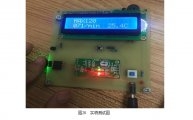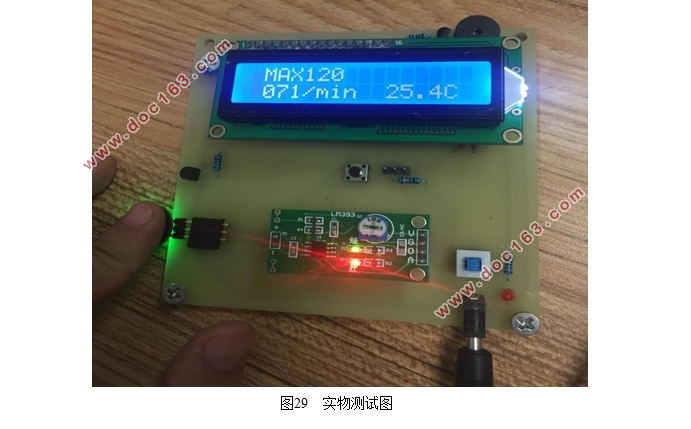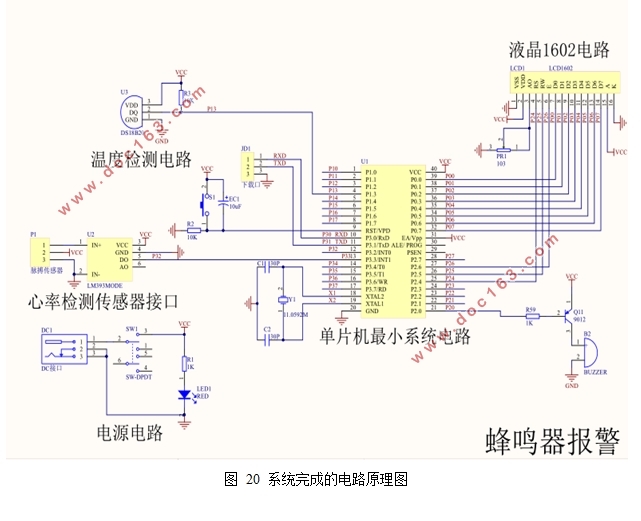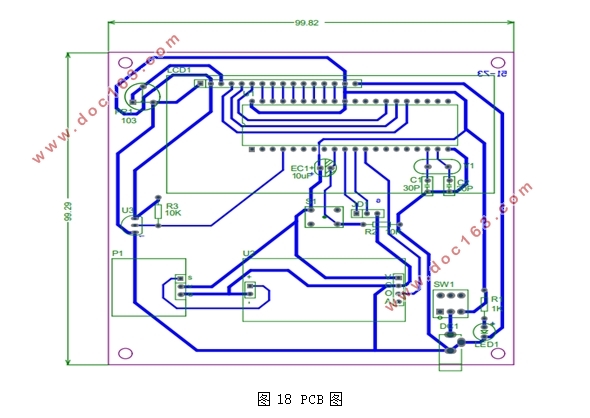基于单片机的脉搏测量系统设计

基于单片机的脉搏测量系统设计(论文10000字)
摘要:生物医学信号指标与人体的生活健康问题密切相关,只有当人类了解并掌握其中的规则,才能更好地解决社会关注度日益增加的健康问题。随着科学技术水平的发展和现代医学水平的不断进步,人们要求越来越高的精确度和方便快捷的生物医学信号的电子检测设备。心脏速度和体温是反映人体体质的的两个非常重要的指标因此它们具有很高的参考价值。考虑到当代社会的生产发展需要,本次毕设需设计一款基于单片机的脉搏体温检测系统,主要用来监测人体的心率和体温。本设计是基于单片机的脉搏检测系统设计,从可操作性和经济实用性等方面考虑,本次毕业设计采用STC89C52单片机作为系统的芯片,利用Pulsesensor 脉搏传感器作为心率的采集模块;而体温的采集则使用DS18B20温度传感器。脉搏波和体温在指尖或耳垂采集,采集的信号经单片机滤波、信号放大等处理后,输出给液晶显示模块显示最终结果。
关键字:单片机;心率传感器;体温测量;液晶显示。
Design of Pulse Measurement System Based on Single Chip Microcomputer
Abstract:Biomedical signal indicators are closely related to people health problems. Only when human understand and master the rules, can we better solve the growing health problems of social concern. With the development of science and technology and the continuous progress of modern medicine, people require more and more accurate and convenient electronic detection equipment for biomedical signals. Heart speed and body temperature are two very important indicators reflecting human body constitution, so they have high reference value. Considering the production and development needs of the contemporary society, this design needs to design a pulse temperature detection system based on single-chip computer, which is mainly used to monitor the heart rate and body temperature of the human body.This design is based on the design of pulse detection system of single-chip computer. Considering the operability and economic practicability, this graduation design uses STC8952 single-chip computer as the chip of the system, pulse sensor as the heart rate acquisition module, and DS18B20 temperature sensor as the temperature acquisition module. Pulse and body temperature are collected at fingertips or earlobes. The collected signals are filtered and amplified by a single chip computer, and then output to the LCD module to display the final results.
[资料来源:Doc163.com]
Key words: MCU; Heart Rate Sensor; Body Temperature Measurement; LCD Display.



目 录
1 绪 论 4
1.1背景与研究意义 4
1.2国内外的研究状况 4
1.3本论文主要工作 6
2 系统功能模块 6
2.1 系统总体设计方案 6
2.2 系统功能要求 6
2.3 系统总体设计框图 6 [资料来源:http://Doc163.com]
3 统硬件设计 6
3.1 处理器 6
3.2 5V电源电路设计 9
3.3 LCD1602液晶显示模块 9
3.4 Pulsesensor脉搏心率传感器模块电路设计 13
3.5 LM393比较器模块 14
3.6 下位机系统PCB图 15
3.7下位机系统的电路仿真 16
3.8 下位机系统的硬件清单 16
4.系统软件设计 18
4.1 C语言优势 18
4.2 软件设计 18
5系统调试 19
5.1 KEIL8051开发工具 19
5.2 PL2303串口程序烧写模块介绍 21
5.3 系统整体调试 23
5.4 实物测试 25
6 毕业设计总结 25
6.1心得体会 25
6.2 存在的不足 27
参考文献 27
致谢 29
[资料来源:Doc163.com]
